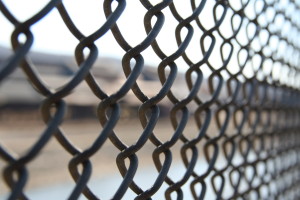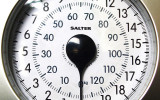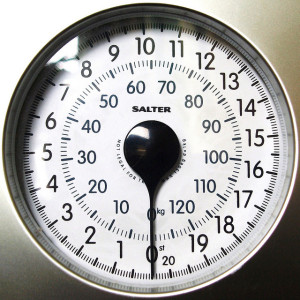

I’m in a rut. I’ve been in a rut for a few years. Wondering what I should be doing with my life and what I want to actually be doing. I feel like a child being asked what I want to be when I grow up, and I answer, “I don’t know”. [Read more…]
The internal musings of a disorganised mind.


I’m in a rut. I’ve been in a rut for a few years. Wondering what I should be doing with my life and what I want to actually be doing. I feel like a child being asked what I want to be when I grow up, and I answer, “I don’t know”. [Read more…]


I have two children, both girls, aged 4 and 5 years old, and they’re a handful. They’re messy and untidy and often difficult to handle. Like all children, they like to colour and draw and make stuff. My wife usually leaves them to their own devices with all the arts and crafts items – paper, scissors, glue, sticky tape, along with an assortment of stickers, googly eyes and other fun stuff. At the end, there’s a huge mess, which drives me nuts. [Read more…]


During the day, things can go horribly wrong at any time. The boss gets on your case; disgruntled customers cuss you out over the phones; or the kids drive you up a wall. You can’t always prevent these things from happening, but it’s a good idea that your day starts off on better footing.
Try these 5 activities every morning to help your day go a little better.
While any regular regime of exercise is good for you, exercising in the morning has been found to be an easier habit to create because there are fewer things happening to squeeze it out. Added to that, morning exercise has been found to aid weight loss, improve sleep and even boost your career.
Get in the habit of doing at least 30 minutes of exercise daily, even if it’s some light stretching.
Breakfast is said to be the most important meal of the day, yet, it is one that is regularly skipped by a large number of people. The benefits of a healthy breakfast are numerous. It can help you lose weight, improve your health and feel more energised and alert.
Make it a habit to eat a high protein breakfast every morning within 2-3 hours of rising.
I regularly meditate every morning for 5-10 minutes after breakfast. Meditation has been proven to reduce stress and improve attention regulation.
By meditating, you help yourself to focus and to better take on the tasks for the day.
I practice something called free writing, which is just writing everything in your mind. There’s no real right or wrong way to free write, but if at the end someone reads it and is utterly confused, then you’re probably doing it right. Set 15 minutes on a timer (I use my phone) and just write whatever comes to mind. At the end of the 15 minutes just stop, close the book and walk away. You can review what you’ve written at another time later in the evening.
Free writing early in the morning helps give you clarity and increase creativity. It’s a judgement free time to start your day.
Before you start your day, review the items that you have planned for the day, stating specifically what you want to achieve and by when during the course of the day. The effect of intention has been shown to improve self regulation allowing you a better chance of achieving your goals.
Your day should not include more that 3 large items to accomplish, interspersed with 2-3 smaller ones depending on the effort involved. It’s important that you don’t set yourself to fail with too many tasks.
Give these tips a try and let me know whether there is a marked improvement in your days.
If you have more tips, please share it in the comments below.

 The recent killing of Trayvon Martin by George Zimmerman and the subsequent not-guilty verdict handed down n the case has raised a furore among many in the population. Honestly, I didn’t follow the case thoroughly, and have no position on the merits of the ruling.
The recent killing of Trayvon Martin by George Zimmerman and the subsequent not-guilty verdict handed down n the case has raised a furore among many in the population. Honestly, I didn’t follow the case thoroughly, and have no position on the merits of the ruling.
The main accusation was that this was a case of racial profiling. Zimmerman saw a teenager of African descent and unfairly targeted him. But, looking at the situation, how many of us might have responded similarly in such a case? While many of you will say that you would not have, in actuality you would be wrong. [Read more…]


Franklin Roosevelt once said that “there are as many opinions as there are experts”. But have you ever wondered that if there were so many experts why is it that we still have so many problems?
With so many experts, shouldn’t we be able to address many of our social ills?
I have often pondered this, especially since we constantly hear politicians, business leaders and others in authority, talk about consulting with experts to find solutions to problems. Many of these experts come in at considerable cost, often with little to show for it. [Read more…]


At the beginning of last year (2012), I set a goal to lose 35 pounds to be at my ideal weight. At the end of the year I lost about 15 pounds. I was still happy about that loss, but disappointed that I didn’t meet my goal, especially that I didn’t make any of my other goals last year either.
But I was committed to losing that weight and leading a healthier life.
With that commitment, hard work, and some help, I lost 15 pounds within the first two months of this year (2013) and by the end of March I had achieved my ideal weight.
Today I share some tips on how I was able to accomplish this. If you have similar goals I hope that this helps you in some way.
Yes! Motivation!
You may want to lose weight, but unless you have a real reason to do so, you will not work towards it. That factor may be close call with death, your kids saying you are fat and you can’t play with them or your spouse has left you and your back on the dating scene. Whatever the reason, it must be big enough to get you moving from your comfort zone.
For me, while I was sporadically doing exercises to lose weight, it wasn’t until certain circumstances late last year that really motivated me to start losing weight.
What will truly motivate you?
Exercise alone will not allow you to lose weight quickly. You have to reduce your calorie intake so that you have a calorie deficit, which means that you have used more energy than you have taken in by eating. This causes your body to utilize its reserves — fat and muscle — to make up for the difference. Do not cut back too much though, as this will cause your body’s metabolism to decrease, leaving you fatigued and drained.
Learn about what foods you should eat and about caloric density. I used a method called volumetrics to keep track of what I eat without needing to be really specific about the caloric content of each food. You don’t have to stop eating the foods that you like, but you do need to eat smaller portions and balanced meals. You will find that you will need to eat more low-calorie foods such as vegetables to keep you feeling full.
Cutting back on calorie intake will allow you to lose weight, as I had stated in the previous point, but you lose weight by burning both fat and muscle. To prevent the excessive loss of muscle, you need to do resistance training, such as lifting weights or other sort of muscle building exercise. This has two advantages. One, this increases the caloric deficit as you burn more calories, and two, the more muscle you build, the more calories you burn, even at rest.
When I first started, I did lots of cardio, but no weight training. Yes I lost weight, but started looking skinnier, not slimmer. Now that I am doing weight training as part of my exercise regime, I’m looking less skinny, and looking more slim.
They say in business that if you can’t measure it, you can’t manage it. This is true of weight loss as well. However, do not make the mistake of measuring your efforts by only tracking your weight. The reason is that you cannot directly affect your weight. You can’t will yourself to lose 5 pounds. But what you can directly influence is what you eat, and how much exercise you do. Keep track of both and ensure that you set a target for how many calories you’ll consume and how much you’ll burn each week.
It is especially important that you do not put too much emphasis on the tracking of your weight. Your weight will fluctuate regularly during the entire period. It’s easy to get demotivated when you see your weight going up. But if you keep tracking your diet and exercise you will see results.
Let’s face it, exercising and dieting is no fun; tt takes some effort to get you to do some of those things. Why most people fail at dieting and exercising is that they can’t seem to muster the strength and will to do them. Instead of increasing your willpower, try reducing the amount of effort it takes to get your exercising and dieting done.
When I purchase fruits, I would cut them up and have them in my fridge as a ready snack. I would also put all of my veggies and salad greens in an easily accessible place in the fridge, and would have healthy snacks around like nuts and fruits.
I used to try to exercise on evenings, but when I was busy doing something I would not take the time to exercise. Instead, I started exercising on mornings as soon as I get off the bed, so there’s nothing holding my attention before. But it was also very difficult to climb out of bed and get ready to go for my morning run, so the night before I would lay out my clothes and shoes at the side of my bed so I just have to change into them when I get up.
One of the largest contributors – if not the largest contributor – to my success was the use of a mobile phone app called Noom Weight Loss Coach (www.noom.com), to keep track of my meals and exercise.
All I had to do was set my current weight and height along with my target weight and how much I wished to lose every week. Noom set up a calorie budget that I should follow. It gave me lots of tips as to what I should eat, what exercises I should do, and how to stay motivated.
Noom allowed me to track my weight, my calorie intake, and how much calories I’ve burned exercising. This goes back to point four that I made above.
The app was so good that I purchased a pro subscription, which was on special at the time.
When I first started on my pursuit to lose weight I did a lot of cardio exercise by running. Later I learned that exercise alone is not enough to lose weight; you must also reduce the amount of calories you intake. So I dieted.
Then I learned, by using cardio and dieting alone, you lose both fat and muscle, so to avoid muscle loss meant that I needed to include weight training within my program (see point 3).
Then, I later learned that I didn’t need to do a whole hour of cardio in order to burn a substantial amount of calories. Instead, you can use interval training where you alter the intensity of the exercise during the session. Interval training allows you to burn a similar amount of calories in almost half the time. In addition, your body continues to burn more calories during the course of the day than if you had done a fixed intensity exercise.
I’m still learning, so I wonder what I’m going to learn tomorrow?
As you get going, it’s difficult at first, but over time it becomes easier and almost becomes a habit. It takes some time to develop habits (especially when it takes some effort to do it in the first place).
But consistency matters!
You must consistently do the things that you must do in order to lose weight or live a healthier life. Soon you will find yourself automatically make healthier eating choices, counting calories, taking stairs instead of the elevator, and doing exercises. Which brings me to my next point…
If you take every opportunity you have to do some type of exercise or physical activity, you’ll find that it adds up to much, even a full workout, over time.
Take the stairs, park further from your destination, walk or bicycle instead of driving. These small choices will go a long way. I call this “death by a thousand cuts”.
As a corollary, every little nibble or bite you take out a piece of cake, or what’s left on your kids’ plates (as happens at my home), also adds to how many calories you eat during the course of a day. Be aware of those “hidden” calories.
Weight loss is a marathon, not a sprint (as the people at Noom keeps reminding me). Do not attempt to lose massive amounts of weight in one go. Instead, choose a goal of losing no more than 2 pounds a week and just keep at it. Weight loss is not a consistent downward direction of your weight, and you would find that you may lose 2 pounds in one month, gain three the next, then lose four the next.
This is what my weight lost looked like. I didn’t start tracking until this year so you won’t see how it looked last year.
Many people get disillusioned when they don’t see results. Many others lose motivation whenever they have a little slip up (I know I did). I may have that junk food today, or that piece of chocolate, or missed my exercise. There were times I didn’t exercise for weeks and would say, “It isn’t worth it now!”. But it’s always worth it. And the thing about having good health is that anytime is a good time to start.
Keep doing the correct things and you will find that you will achieve your goal.
I hope that these tips help you. If you have more tips that you would like to share, please add them in the comment section below.
All the best with your weight loss efforts. Your hard work will pay off greatly in many ways.


Yesterday, my wife and I celebrated our 10th wedding anniversary together. We had a nice quiet night out with a movie and then dinner. We would have done dinner and a movie, but we get very sleepy after eating. Either way, we had a great time.
After 10 years of marriage, you may think that I’ve learned a thing or two about woman — but no, not really. I think I’d probably die and still not understand women.
I have learned a thing or two about marriage, though, and for our 10th anniversary, I will give you 10 things that you may have thought about marriage that just aren’t true. [Read more…]


This is a blog mainly about my personal thoughts and opinions, but it's also a personal journey to self discovery.
Well I have, and I want to do something about it.
| M | T | W | T | F | S | S |
|---|---|---|---|---|---|---|
| 1 | ||||||
| 2 | 3 | 4 | 5 | 6 | 7 | 8 |
| 9 | 10 | 11 | 12 | 13 | 14 | 15 |
| 16 | 17 | 18 | 19 | 20 | 21 | 22 |
| 23 | 24 | 25 | 26 | 27 | 28 | 29 |
| 30 | 31 | |||||